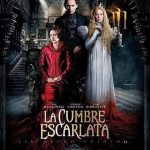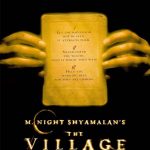Luca (2021)
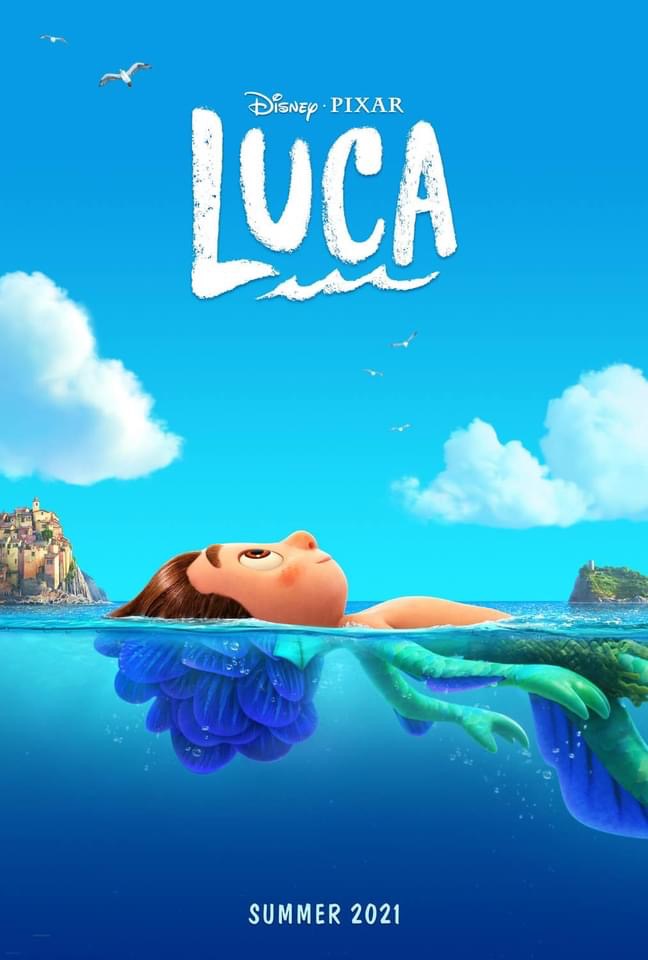
Luca (2021), directed by Enrico Casarosa, is an emotionally rich and visually captivating film from Pixar that blends coming-of-age storytelling with themes of friendship, identity, and the beauty of personal transformation. Set against the sun-drenched backdrop of the Italian Riviera, the film takes audiences on a heartwarming journey through the lives of two sea monsters who yearn for a life above the water. Casarosa, known for his work as a storyboard artist on Ratatouille and Up, brings his distinctive sensibilities to Luca, presenting an animation that is both visually fresh and emotionally sincere.
Suggested videos for you:
Plot and Themes
The plot follows Luca Paguro (voiced by Jacob Tremblay), a young sea monster who has always been curious about the human world above the surface but has been kept in check by his overprotective parents. When Luca meets Alberto Scorfano (voiced by Jack Dylan Grazer), another sea monster who has embraced human life, their friendship forms the crux of the film. Alberto introduces Luca to the idea of exploring the coastal town of Portorosso, where the two sea monsters experience the thrill of being “human” — a journey full of both joy and fear as they hide their true nature from the human townspeople.
At its core, Luca is a story about growing up and finding the courage to face one’s fears and embrace personal identity. Throughout the film, Luca grapples with the notion of conformity, a theme that resonates with anyone navigating the difficult process of self-discovery. The friendship between Luca and Alberto serves as a powerful symbol of the transformative power of trust and support, highlighting how true friendship can help us overcome even our deepest insecurities.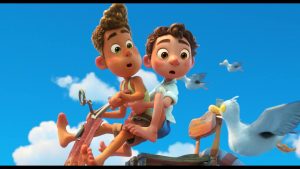
Visuals and Animation
One of the most striking elements of Luca is its animation style. The film takes full advantage of Pixar’s ability to create breathtaking visuals, but with a refreshing simplicity and warmth that feels like a departure from the studio’s usual fare. The design of Portorosso itself is a testament to the Italian coastal beauty, with rolling hills, picturesque streets, and vibrant colors that evoke the relaxed pace of Mediterranean life. The characters, too, are designed with a charming, almost hand-drawn look that reflects their youthful innocence and vulnerability.
The water, which plays a central role in the characters’ lives, is animated with a fluidity and translucency that makes it feel both magical and real. The way the sea monsters transition between their underwater forms and human forms is striking, capturing the sense of awe and excitement that comes with their newfound freedom. The visual style is a perfect match for the film’s lighthearted tone, creating a world that feels both grounded and dreamlike.
Characters and Performances
Luca is powered by a cast of endearing characters, starting with the titular Luca. Voiced by Jacob Tremblay, Luca is a wide-eyed, inquisitive young monster whose desire for adventure is tempered by the fear instilled in him by his cautious parents. Tremblay’s performance captures the innocence and hesitancy of the character, making his journey of self-discovery both relatable and poignant.
Jack Dylan Grazer’s performance as Alberto is equally strong. Alberto is a more carefree and confident character, but his own struggles with acceptance, both from humans and his own family, are a key part of the emotional heart of the film. Their friendship feels natural and genuine, built on mutual admiration and support.
The supporting characters, including Luca’s overbearing mother Daniela (Maya Rudolph) and his father Lorenzo (Jim Gaffigan), are also memorable, offering both humor and warmth. The human characters, such as the spirited and competitive Giulia (voiced by Emma Berman), add layers to the narrative, with their own journeys of growth and self-acceptance. Giulia becomes an important ally for Luca and Alberto, offering them a sense of belonging that transcends their differences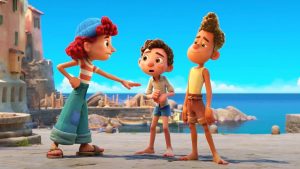 .
.
Humor and Emotional Impact
While Luca is undeniably a lighthearted film, it doesn’t shy away from exploring deeper emotional themes. The humor in the film is gentle and often stems from the characters’ fish-out-of-water experiences, as Luca and Alberto try to navigate human customs and their own insecurities. The scenes where they attempt to disguise their true forms are filled with light comedy, but the film also delves into moments of vulnerability that give it emotional depth.
There are several poignant moments, particularly involving Luca’s relationship with his parents. His mother, Daniela, represents the voice of caution and fear, while his father, Lorenzo, is more easygoing but ultimately just as concerned about Luca’s safety. The tension between the desire for freedom and the pull of family loyalty is beautifully illustrated, especially as Luca’s growth pushes him to question what his parents expect from him and what he truly wants for himself.
At its heart, Luca is a film about finding one’s own identity and learning to accept that identity in the face of external expectations. It addresses themes of personal courage, acceptance, and the importance of stepping outside one’s comfort zone. The film also subtly touches on LGBTQ+ themes of self-acceptance and navigating societal pressures, making it resonate with audiences of all ages and backgrounds.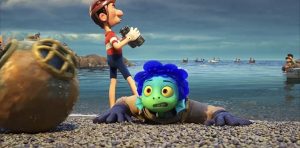
Conclusion
Luca is a stunning, feel-good film that offers more than just a summer adventure on the Italian coast. It’s a story of self-discovery, friendship, and the power of stepping into the unknown. The animation is beautiful and unique, and the performances are heartfelt, bringing the characters to life in a way that is both entertaining and meaningful. While it may not carry the same emotional weight as some of Pixar’s heavier films, Luca stands out for its warmth, charm, and universal message of embracing who you truly are. In a year where many of us felt the need to connect and belong, Luca serves as a beautiful reminder of the joys of friendship and the courage it takes to be yourself.
Luca (2021), directed by Enrico Casarosa, is an emotionally rich and visually captivating film from Pixar that blends coming-of-age storytelling with themes of friendship, identity, and the beauty of personal transformation. Set against the sun-drenched backdrop of the Italian Riviera, the film takes audiences on a heartwarming journey through the lives of two sea monsters who yearn for a life above the water. Casarosa, known for his work as a storyboard artist on Ratatouille and Up, brings his distinctive sensibilities to Luca, presenting an animation that is both visually fresh and emotionally






